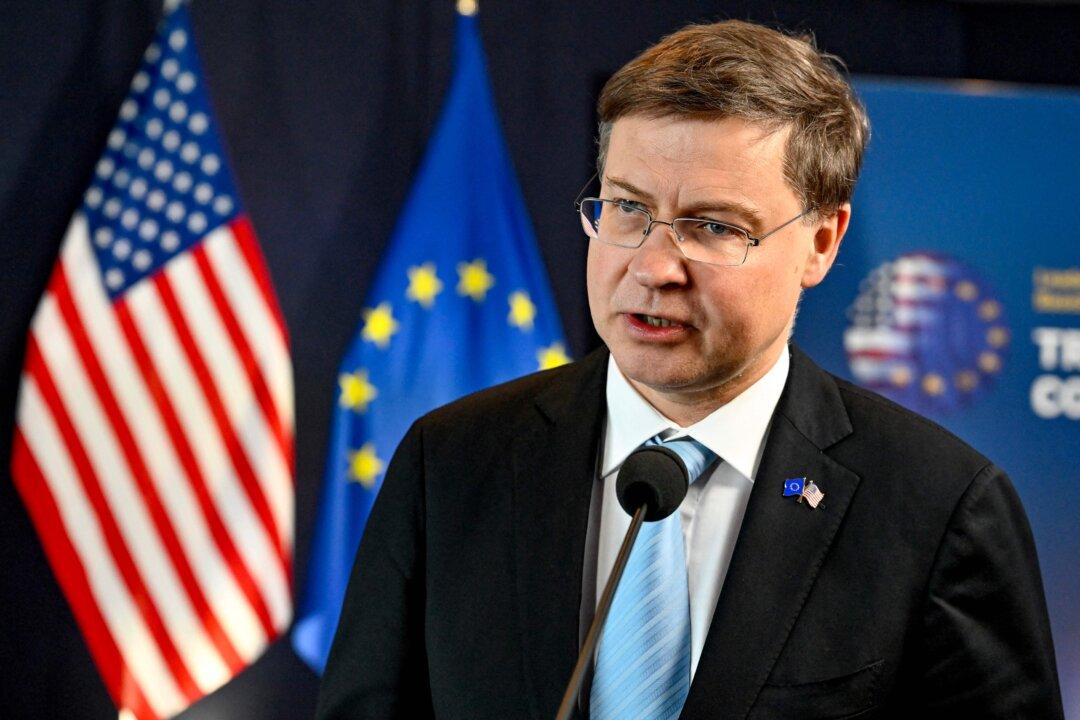The European Union said on Oct. 25 that there are still “significant remaining gaps” in negotiations aimed at avoiding high tariffs on electric vehicles (EVs) made in China, which are due to take effect next week.
The EU’s trade chief, Valdis Dombrovskis, held a virtual meeting with his Chinese counterpart, Wang Wentao, on Oct. 25, as part of the ongoing discussion to address Brussels’s concerns over subsidized EVs imported from China, according to the European Commission.




